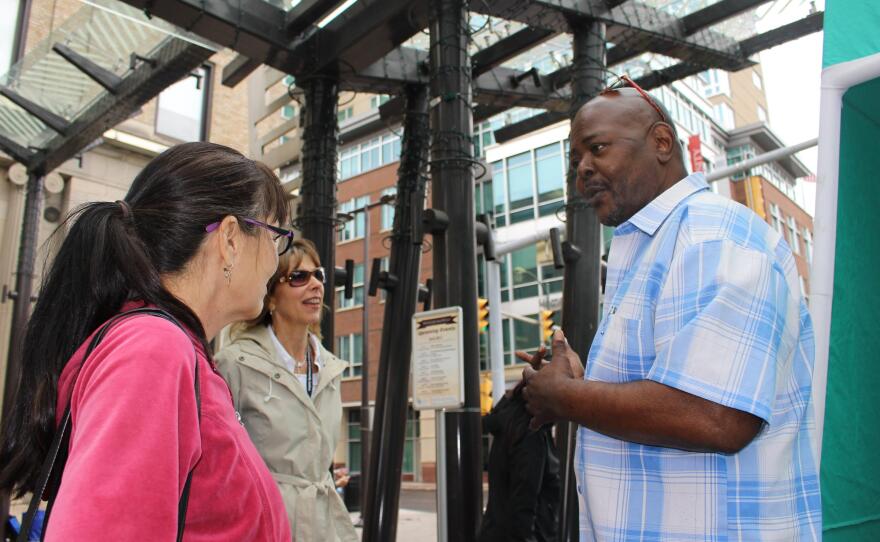Safe or supervised consumption sites are places where people addicted to drugs can use drugs under the supervision of medical staff - and without fear of arrest. They're illegal in New York, but Ithaca gained national attention last year when it proposed one.
There's buzz in several communities around the country about whether safe consumption sites could be a response to the opioid epidemic (officials in the Seattle area announced plans for two sites).
As part of a swing around the state, advocates stopped at the Ithaca Commons this week with a model safe consumption site. The groups, including Vocal NY and Drug Policy Alliance, put up a tall, sea green tent, and invited passersby to take a tour.
The tent is supposed to simulate a safe consumption site. It's divided into three spaces: a supply area, a consumption area, and the "chill room."
Robert Suarez of Vocal NY described the supply area. "You see we have blue ties, [so] people can tie off their arm when they're injecting. We also have cookers where people can cook the heroin if they need to. We have clean syringes."
There are also Narcan kits to reverse overdoses and some safe consumption sites may have tests to measure the potency of a sample. (Patients supply their own drugs.) In the "chill room," a person can experience his or her high. Medical staff is on hand throughout, in order to avoid deaths from overdoses.
There are safe consumption sites in 9 countries, including Canada, according to the Drug Policy Alliance. Vancouver's Insite, the first in North America, says it's had thousands of overdoses and zero deaths.
"Out of the hundreds of thousands of people who have used safe consumption spaces all over the world, they have family members that got to see them that evening," said Suarez.
These spaces can also be a conduit to treatment, disease testing and other services.
For advocates, the pop-up site was a way to convince people this is not that scary of a thing.
Some people at the demonstration were into the idea.
But Neil McTamney of Dryden said he's worried patients would be targeted, despite reassurances law enforcement would be on board. "You know an addict needs to feel safe that he's not going to get arrested," he said.
Tompkins County Legislator Mike Sigler, a Republican from Lansing, said he needs a lot more information. "Heroin's not just some kind of run-of-the-mill drug," he said. "And we're going to relieve all the shame from that. People are worried that you're going to normalize it."
Shame and stigma, though, are what Robert Suarez and his colleagues say contribute to drug addiction in the first place. "This is something that's for individuals who have been for the most part criminalized, demonized, stigmatized," he said. "Who have been beaten down."
It's a vastly different way to approach drug treatment. Advocates say the heroin emergency demands it.








